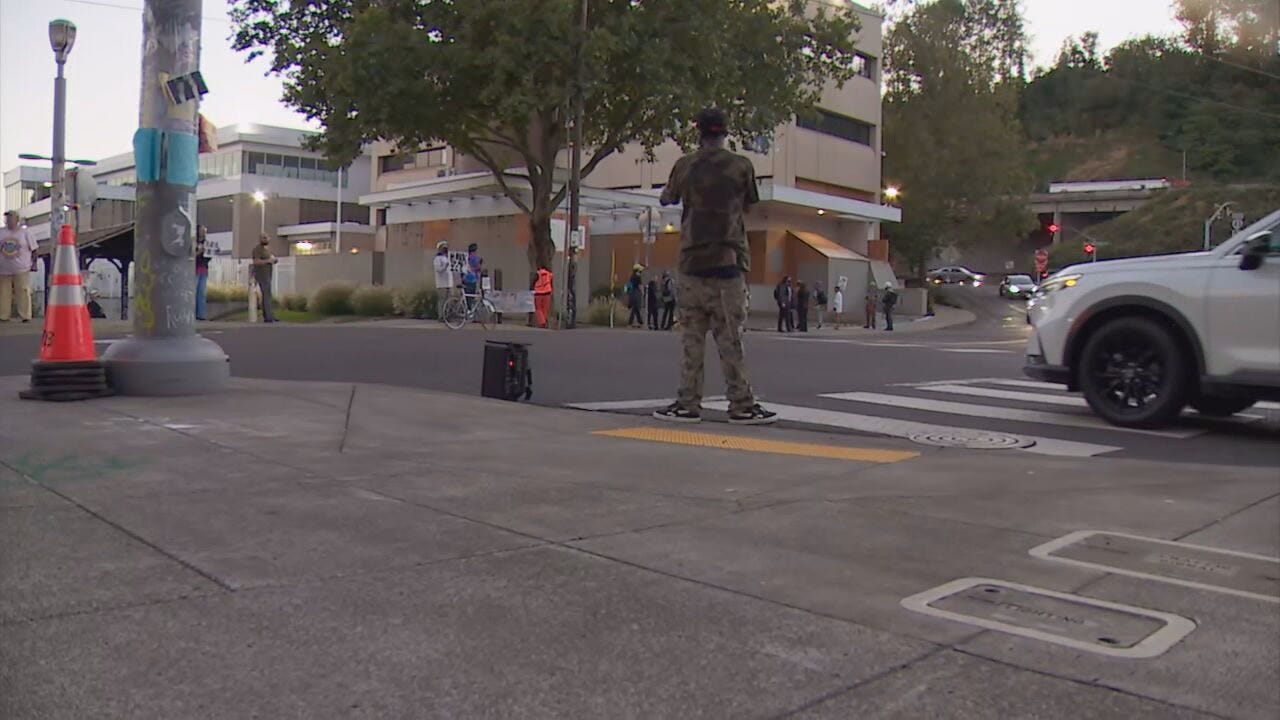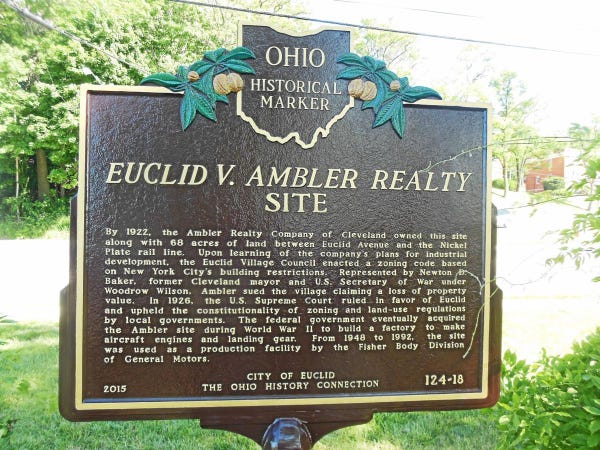A version of this article originally appeared on The Future of Where and is republished with permission.
The Trump Administration is getting ready to send federal troops into their latest targeted “urban hellhole” – in this case, Portland. But Portland is fighting back.
With zoning.
This week, Portland is planning to file a “land use violation notice” against U.S. Immigrant and Customs Enforcement for alleged zoning violations at an ICE facility in Southwest Portland.
The facility is not owned by the federal government – it is leased from a private owner – and is therefore subject to a set of conditions put into place by the city back in 2011. Among those conditions is a prohibition on overnight detention, which ICE has blatantly violated.
The city could fine ICE or reconsider the land use rules. The decision is made by a hearing officer and is appealable to the Portland City Council. After that, my contacts in Oregon tell me, the decision could be appealed to the state Land Use Board of Appeals under Oregon’s extensive state growth management law.
Given its usual scorched-earth approach to everything, the Trump administration will undoubtedly continue to ignore Portland’s land-use conditions – and most likely challenge them in court. The question is what the challenge will look like. The administration could simply claim the feds are not subject to local control even though the facility is on leased property from a private property owner. And/or it could challenge Portland’s whole land-use regulation regime, most likely in federal court.
And that would be where this whole thing gets interesting.
Oregon’s Restrictive Land Use Regulations
Oregon has had the strongest and most expansive state land use law in the nation for more than 50 years. Among other things, it requires all cities of any size to create urban growth boundaries and it discourages any development in rural areas outside those boundaries. This law has come under increasing pressure as Oregon has also sought to increase housing production. (I traced the history of the law and the nature of this tension in a speech in Bend in 2023, which you can view here.)
Portland has been a center of land use reform inside the boundaries, as loosened single-family zoning has allowed more small-scale multifamily development. (You can read more about these efforts in a Terner Center publication I co-authored here.)
But there remains a lot of tension around how and when Portland and other cities should expand their urban growth boundaries. Under the law, cities are supposed to expand their boundaries in order to maintain a 20-year supply of land for future growth. In practice, defenders of the growth management law have made is hard to expand the growth boundaries.

The ICE facility outside Portland (via KATU).
It’s no secret that the Trump Administration favors suburban expansion over infill development as a strategy to increase housing production. Interior Secretary Doug Burgum has repeatedly talked about popping open federal land for housing and Trump himself has boasted about the possibility of creating “Trump Freedom Towns” on federal land.
In challenging Portland’s land use violation notice in federal court, the Trump Administration could take a narrow approach, arguing that the locals can’t regulate the feds. Or, the administration could take a broader approach and go after the whole growth management law,, which would open up a … well, let me explain.
Is Zoning Legally Vulnerable?
Restrictive zoning has increasingly become the bad boy of the housing supply and affordability crisis. The YIMBY movement is based on the idea of zoning reform, which has gained traction in both red and blue states and has increasingly won bipartisan support in Congress as well. The Road to Housing law pending in Congress would actually expand Biden-era efforts to promote zoning reform.
Although more housing production is a bipartisan issue, so too is the larger idea of reforming zoning – and not just for housing purposes.
Conservative legal scholars, as well as advocacy attorneys such as those at the Pacific Legal Foundation, have long sought to weaken zoning on ideological grounds, saying that zoning undermines private property rights enshrined in the Fifth Amendment.
Meanwhile, zoning has also come under criticism on the left in recent years, as social justice advocates claim it is exclusionary and racist. (This view began to gain currency with the publication of Richard Rothstein’s straightforward but powerful book, The Color of Law.)

These ideas have gained even more currency because next year is the 100th anniversary of Euclid v. Ambler, the 1926 U.S. Supreme Court that upheld zoning.
On the eve of Euclid’s anniversary, there’s a school of thought that says zoning’s constitutionality is actually vulnerable at the Supreme Court. The conservative justices may want to strike down zoning to protect property rights, while the liberal justices may want to strike down zoning for social justice purposes.
Would the Trump Administration go after zoning’s constitutionality via the Oregon growth management act? Or, even if the administration doesn’t go after zoning directly, would it seek to dismantle the law in order to encourage suburban expansion and housing production?
If so, what kind of house of cards would collapse, in Oregon and elsewhere? It’s impossible to say – but sooner or later, you can bet Trump’s folks will go after restrictive zoning laws in a scorched-earth way, and they may get bipartisan support to do it.






